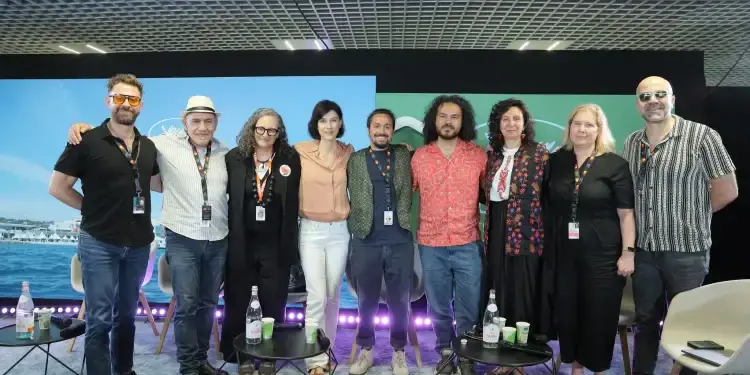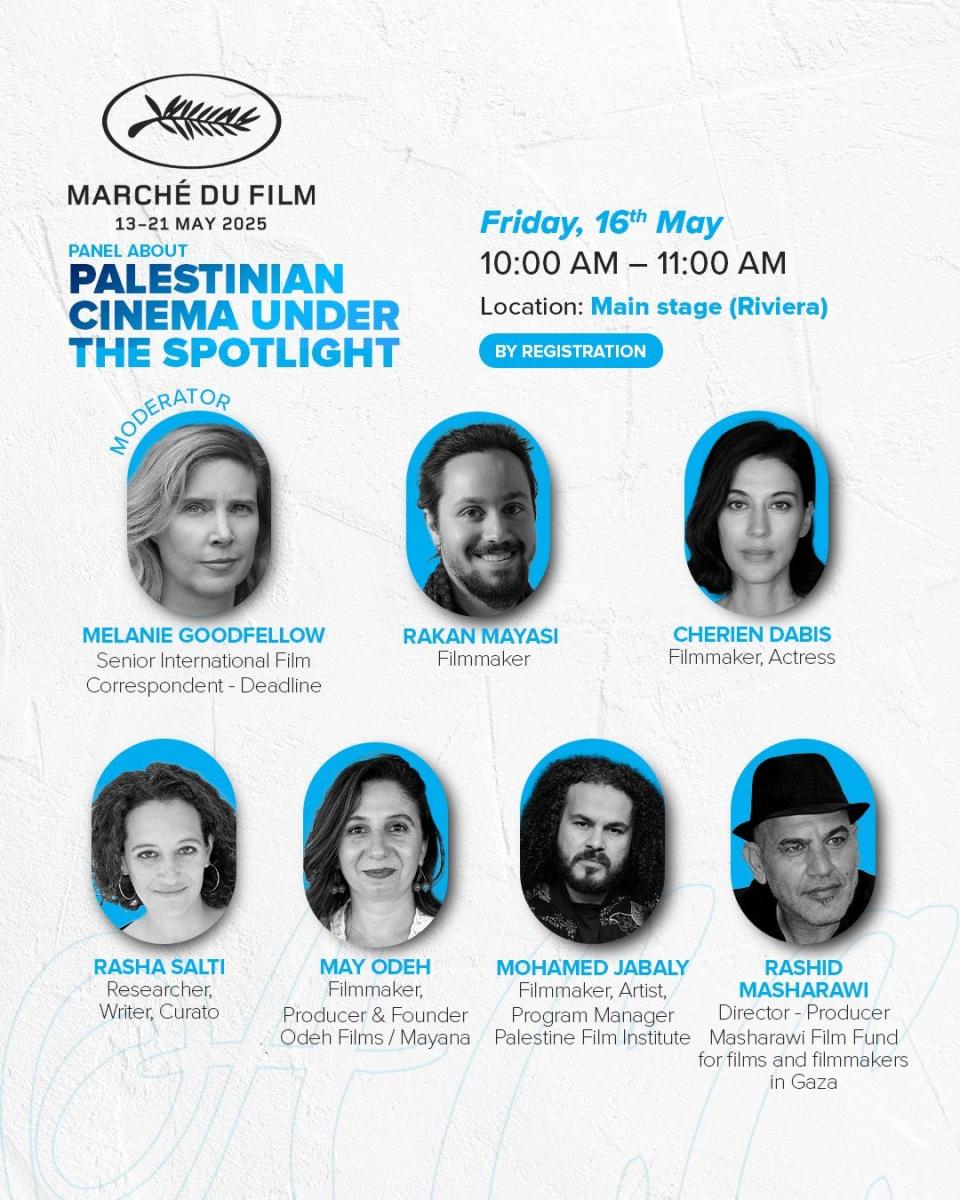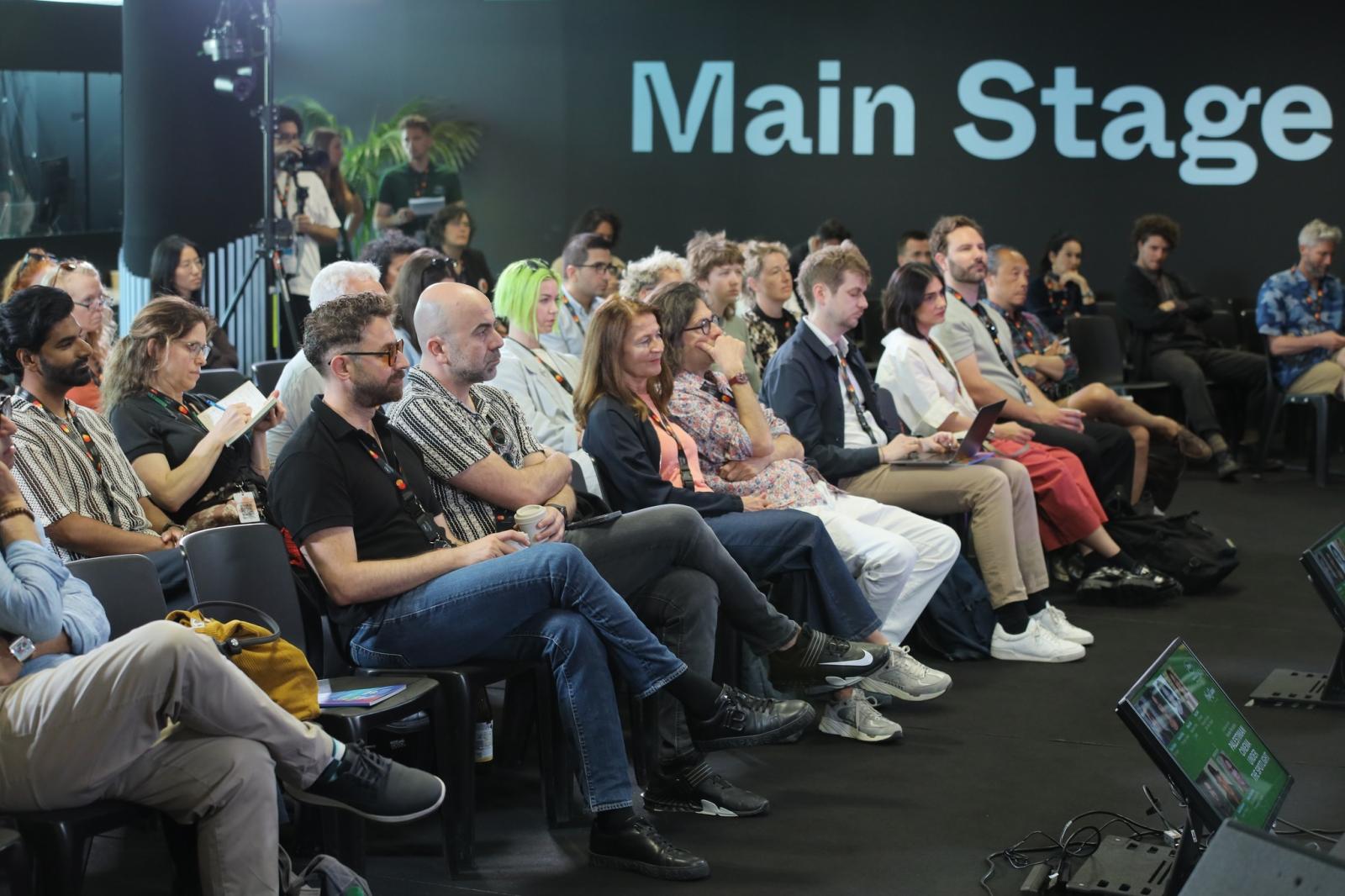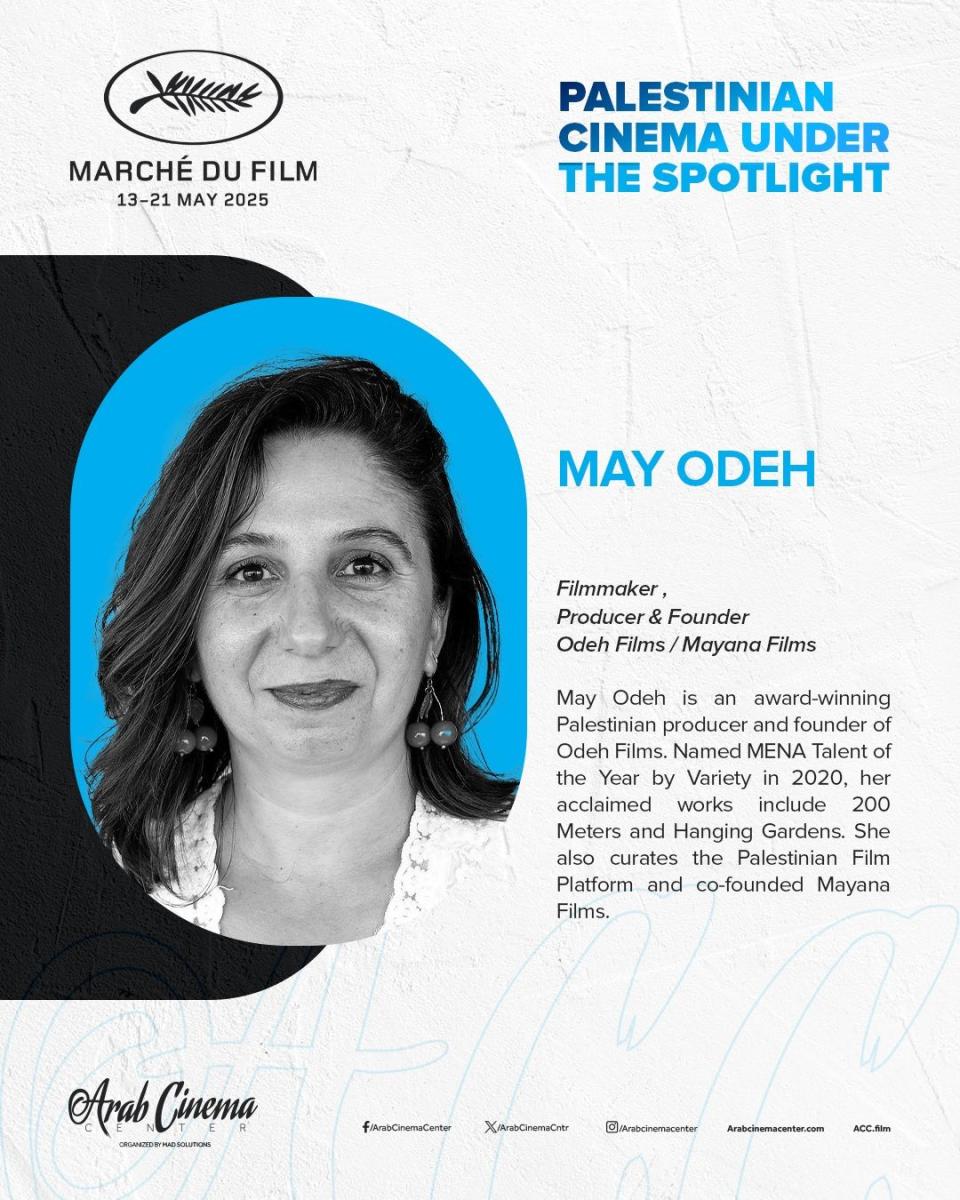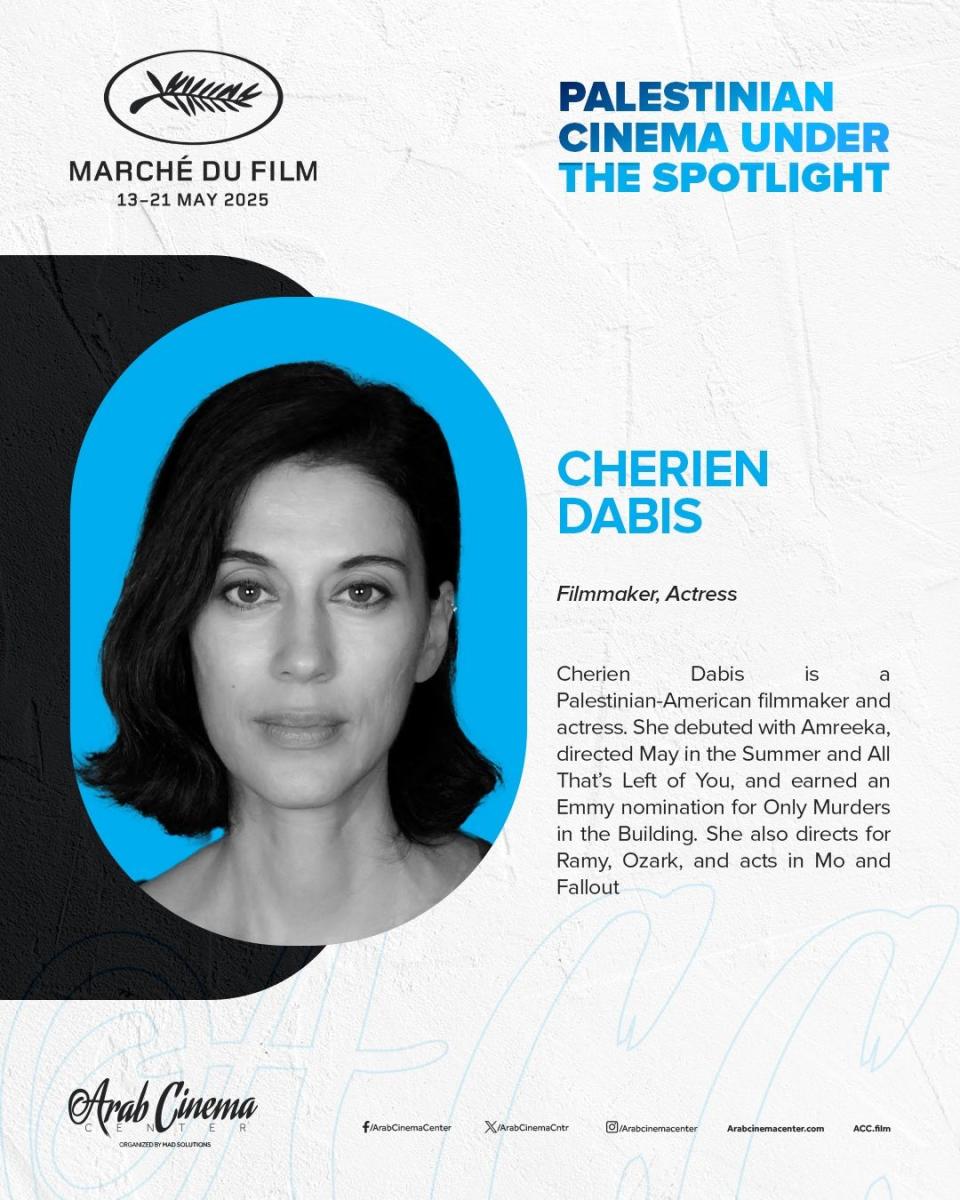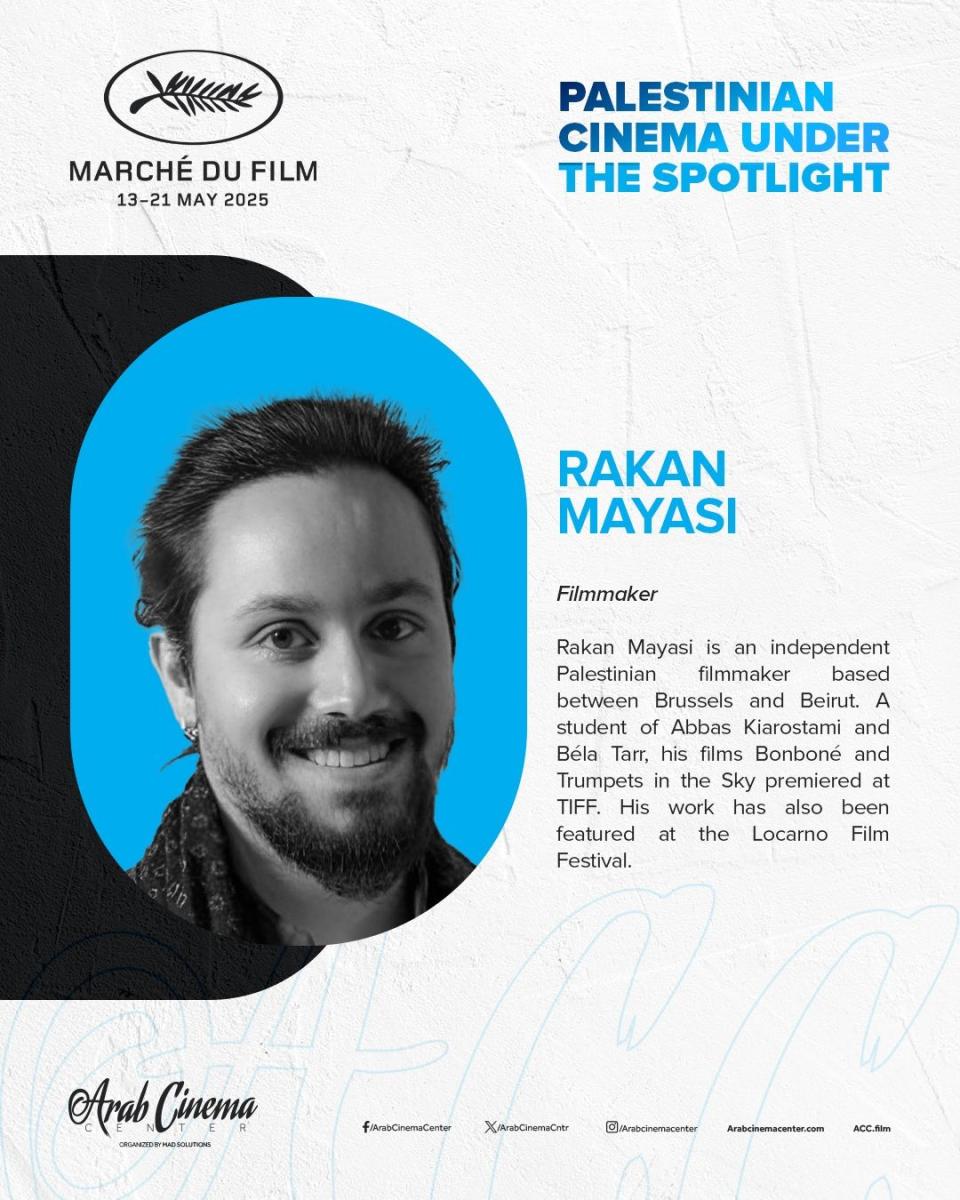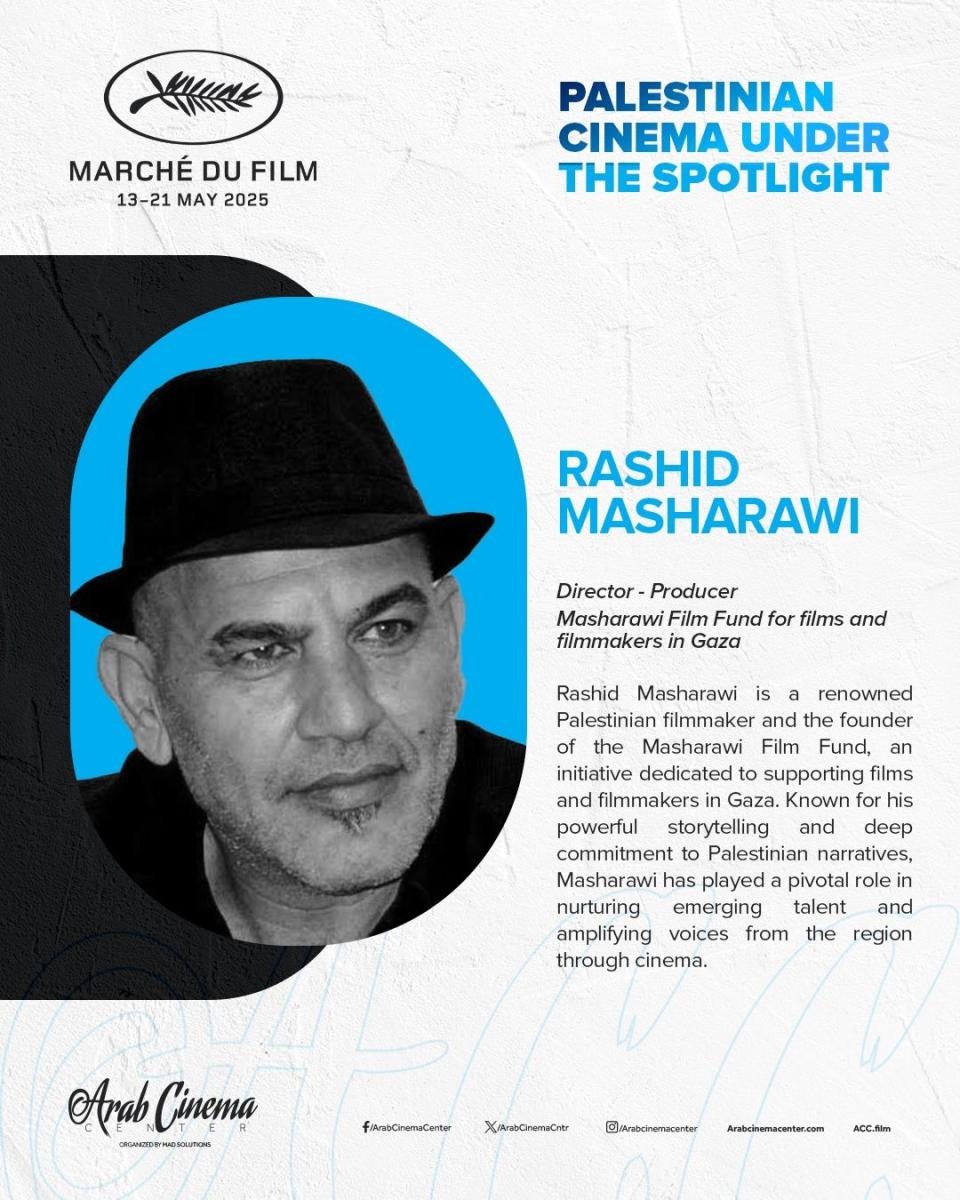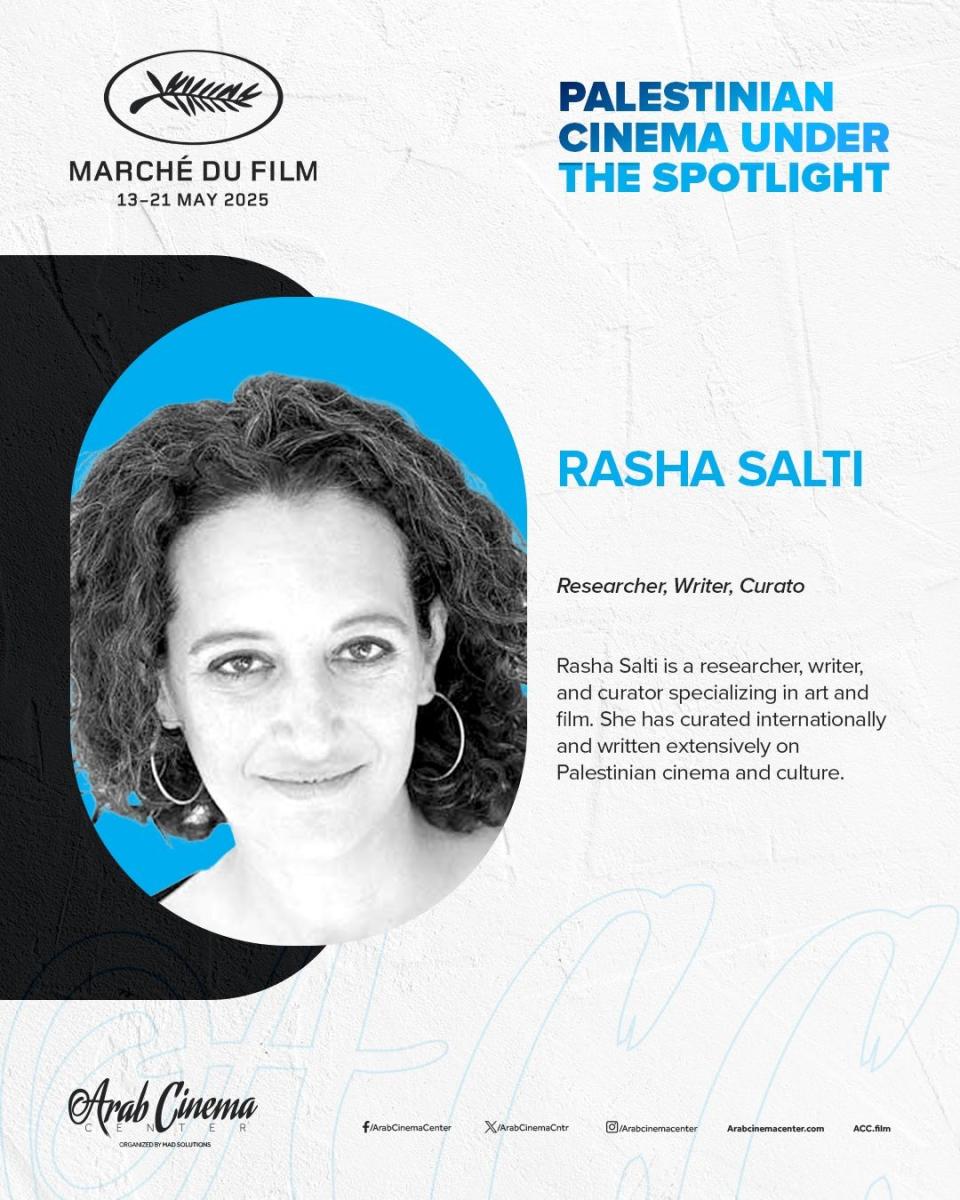It is within the framework of the Cannes Film Film Film market that a round table of an intense emotional load took place: “Palestinian cinema under the spotlight”. Organized by the Center of Arab Cinema in collaboration with the Palestine Film Institute, this panel has honored cinematography in struggle, shaped by exile, oppression and a permanent quest for memory. Through the stories of the speakers, a resistance cinema, but also with aesthetic and narrative richness still too little known to the general public, took shape.
Moderation was provided by Melanie Goodfellow, an international senior correspondent for Deadlinewhich orchestrated the exchanges between major figures of the Palestinian cinematographic landscape. In the room, we noticed the presence of many Western faces – a notable contrast with the mainly Arab assistance of the panel devoted the day before to the Egyptian cinema. An undoubtedly sign of the growing international echo that Palestine arouses today, in a global context marked by renewed attention to its cause.
Producer and director May Odeh opened the exchanges with a striking testimony on physical and bureaucratic obstacles to cinematographic creation. “If I wanted to shoot a film with directors like Elia Suleiman or Hany Abu-Assad, who have Israeli nationality, I could not, because I am not free to move inside Israel,” she explains. Film producer 200 meterswhich precisely deals with traffic restrictions, it describes a daily life of controls, arbitrary authorizations, prohibited roads. “I have friends from certain regions of Palestine that I can only see abroad. And this type of story is not isolated: she also evokes the case of director Najwa Najjar, who had to wait a month in Jordan to obtain the visa allowing the main actor of his film EYES OF A THIEF to participate in the shooting.
This obstacle to mobility and creation, Cherien Dabis lived it more intimately. A American-Palestinian director and actress, she recounts her first trip to Palestine, at the age of 14. “I grew up in Ohio, in the United States. I have always been told that I was Palestinian, but it was all abstract. When we went with the family to Palestine, with my little sister who was only two or three years old, I saw my father, a dignified man, to be humiliated to the point of blushing in shame. It was a founding moment. She evokes the brutal discovery of a reality whose contours she knew, but which she had never lived. “My cousin was killed when I was five years old. We talked about it at home, but there, I have seen Palestine. I understood what the Nakba was. I understood that the story of my family was a story of dispossession. »»
Rakan Mayasi was never able to set foot in Palestine. Born and raised in Jordan, trained in Lebanon, he explains how his cinema was born from frustration, an identity vacuum. “It is by realizing Bonbon that I really started to understand the difficulties of making Palestinian films. I wanted to play Salah Bakri, but he couldn’t even go to Lebanon. Logistics, visas, refusals, prohibitions … everything is a fight. And it’s a perpetual struggle to find solutions. »»
The filmmaker Rashid Masharawi, also present, told a trajectory marked by the desire to film against and against everything. Born in a refugee camp in Gaza, he never stopped documenting daily life under occupation, with reduced means but a vital emergency of testimony. He notably evokes his latest film, From Ground Zeroturned in extreme conditions and yet reached the doors of the 2025 Oscars, being shortlisted in the category of the best documentary. Through this anthology film, Gazaouis tell their daily lives in the first days of war, with a camera as the only weapon, to document the inexpressible and carry the voice of a forgotten people. “Being on the shortlisters of the Oscars is important not for me, but for Palestine. This means that our voice is finally starting to be heard. »»
For him, Palestinian cinema is still too often in reaction rather than action. However, their cultural heritage is very rich, and the Palestinians should work to make it known, to make their narrative heard.
The researcher and curator Rastha Salti brought a historical and aesthetic perspective, recalling that Palestinian cinema was built in the margin, often outside of classical standards. “The settlers have always wanted to impose a story on the colonized. Always – whether the English with Indians, or others – Palestinian cinema, to get rid of these rules, had to invent its own forms, break the frames. »»
It also looks back on the way in which the first films made in Palestine, notably by Europeans, helped to forge a biased image. “From the time of the Lumière brothers, in front of this sacred earth that is Jerusalem, the films showed an empty, sacred land, disconnected from reality. You never saw schools, hospitals, markets, real life. They were used to nourish an orientalist fantasy. »»
Although all the stories told by the Palestinians are dramatic, they were able to decline them in very diverse forms. “Some films are funny, other poetics …” As a programmer, she evokes public reactions in New York, often surprised by the artistic quality of these works. “These are sophisticated, deep films, which arouse very rich debates. You also have to learn to speak with those who do not agree, who are shocked, angry. »»
She also insists on the importance of showing these films in refugee camps, especially in Lebanon. “Spectators want to review the cities they have left and where they no longer have the right to return. They also want to discover other Arab films, because they do not have the opportunity to travel. Cinema becomes a form of escape, but also of transmission. »»
Rasha Salti concludes by recalling the central place of poetry in Palestinian cinema. The symbols are omnipresent: olive trees, keys, abandoned houses … So many recurring figures of an imaginary built on loss, but also on persistence.
In filigree of this dense panel, a whole geopolitics of the image was drawn. Palestinian cinema, far from being confined to a testimony role, affirms today a strong, inventive aesthetic voice capable of touching various audiences … provided that the doors are finally opened.
Neïla Driss


